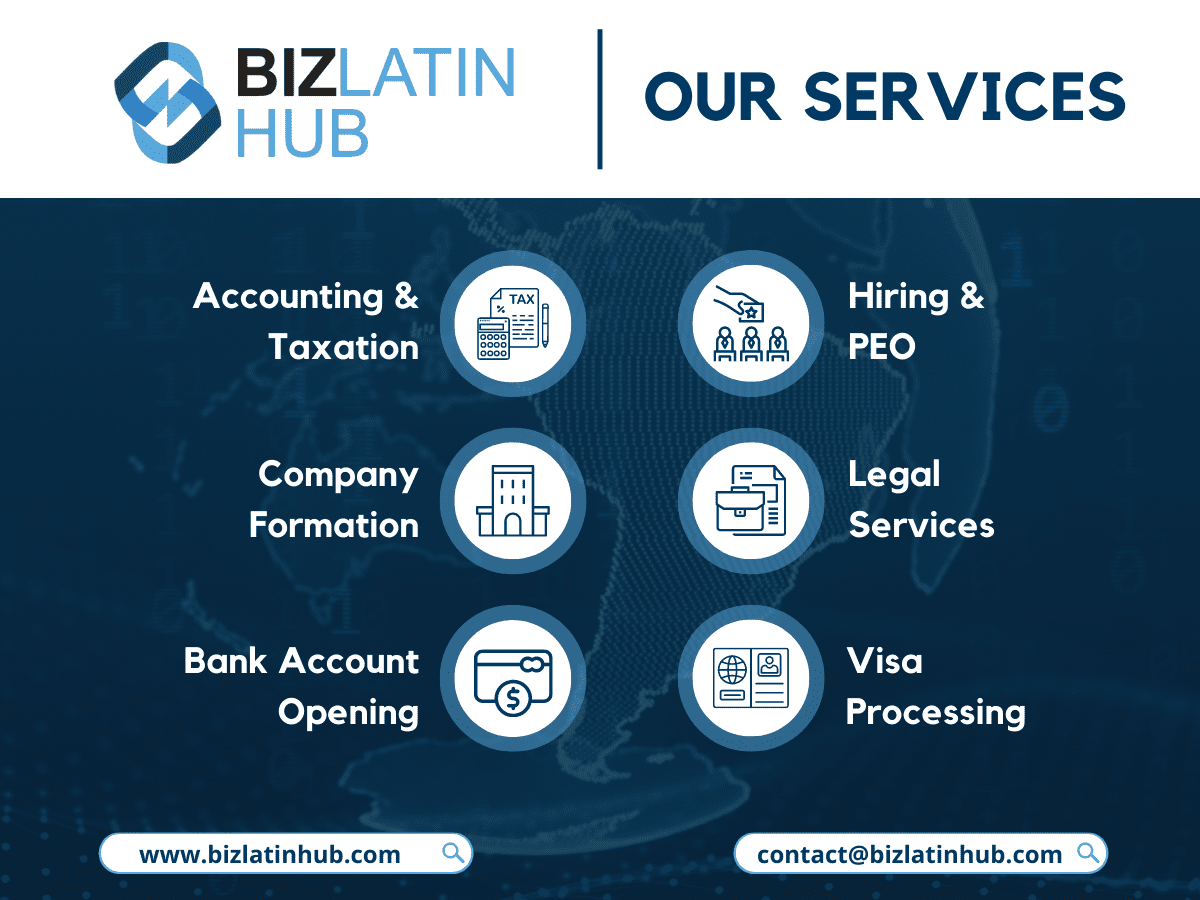Anyone who is a tax resident in Colombia or non-resident who generates income within the country will need to understand their obligations with regards to income tax. The following guide offers insight into income tax in Colombia for the taxable years 2021 and 2022.

Colombia attracts significant levels of foreign investment, and is an increasingly popular destination for foreigners visiting and relocating from the likes of the United States and Europe, thanks in part to growing awareness of the country’s success in combating historically high levels of violence.
While foreigners from those parts of the world can be found all over Colombia, they tend to be most concentrated in cities such as Cartagena and Medellin, as well as the capital city Bogota — with a range of investment opportunities on offer in those cities.
Both Colombian nationals and foreign residents are obliged to comply with the regulations concerning income tax in Colombia, based on revenues generated both inside and outside the South American country.
In Colombia, the financial year runs from January 1 to December 31 and income tax for a given financial year is due the following financial year. For individuals, the due date for payment of income tax in Colombia falls between August and October, with the date assigned based on the last two digits of their registered identification number. Income tax must be paid in one installment.
If you are doing business in Colombia and in need of back-office support, or planning to launch in the country and looking for assistance with your market entry, contact us today to find out more about how we can help.
See Also: How to register a company in Colombia?
Who must file an income tax return in Colombia?
Colombian nationals living in the country and foreigners with tax residency in Colombia must file an income tax return under the following circumstances:
- They have income from worldwide sources above COP 50,831,000 (approximately $12,494)
- They have gross equity of at least COP 163,386,000 (approximately USD 40,386) as of December 31.
- They have credit card consumptions, financial transactions, or total purchases during the corresponding financial year of at least COP 50,831,000 (approximately USD 12,494)
Colombian nationals living abroad may still have to pay income tax in Colombia if they meet any of the following criteria:
- Their spouse, permanent partner, or dependent minor children have tax residence in the country
- They earn more than 50% of their income within Colombia
- At least 50% of their assets are deemed to be held within Colombia
- At least 50% of their assets are administered within Colombia
- Following a request from Colombia tax authorities, they fail to adequately prove they are tax residents of another jurisdiction
- They are tax residents in a jurisdiction deemed to be a tax haven
- In accordance with the Vienna conventions, they are exempt from paying income tax in a foreign jurisdiction where they reside related to foreign service on behalf of the Colombian state.
Non-tax residents may still be liable for income tax in Colombia if their revenue from sources within the country or assets/equity held within the country meet the following criteria as of December 31 of the corresponding financail year:
- Income above COP 50,831,000 (approximately $12,494)
- Gross equity/assets of COP 163,386,000 (approximately USD 40,386)
Note that any foreign national in Colombia for a total of more than 183 days within a continuous 365 day period, with the days of arrival and departure counting towards that total, will be taxed in the same way as a Colombian national.
Which type of revenue is subject to income tax in Colombia?
Income tax in Colombia is applied to taxable revenue earned from global sources unless it is expressedly exempted, either due to a double taxation treaty being in place, or when that revenue is drawn from specific sources.

The following sources of revenue are some examples of those exempted from income tax in Colombia:
- Compensations due to work accidents or illness
- Funds received for burial expenses of a worker
- Severance payments and interest on severance payments if they are received by workers whose average income in the last six months of employment does not exceed COP 13,301,400 (approximately USD 3,400)
- Death insurance, death compensations, and social benefits related to the activity and retirement of members of the military or police force.
- Other specific exemptions.
Calculating the taxable base for income tax in Colombia
The method for calculating the taxable base for income tax in Colombia is laid out in Article 26 of the Colombian Tax Code, which reads as follows:
“ARTICLE 26. INCOMES ARE THE FOUNDATION OF TAXABLE BASE. The taxable base is determined as follows: from the sum of all the ordinary and extraordinary income realized in the taxable year or period, which are susceptible of producing a net increase of the gross equity at the time of their receipt, and which have not been expressly excepted, the returns, rebates and discounts are subtracted, obtaining the net income. From the net income are subtracted, when applicable, the costs incurred attributable to such income, thus obtaining the gross income. Deductions made are subtracted from the gross income, obtaining the taxable base. Except for legal exceptions, the taxable base is taxable and the rates established by law are applied to it.”
Income is made up of three different categories:
1) General income (labor, capital, and non-labor income)
As indicated in Article 103 of the Tax Code, income obtained by individuals from salaries, commissions, social benefits, per diems, representation expenses, fees, ecclesiastical emoluments, and in general, compensation for personal services, are considered exclusive labor income.
Capital income is also included in this category; this is the income obtained from interest, financial yields, and exploitation of intellectual property.
This category also includes non-labor income, which is considered as all income not expressly classified in any other category, except for dividends and occasional profits, which are governed by their own special rules.
Note that expenses necessary in the development of any income-producing activity are deductible, as long as they can be shown to be necessary and proportionate according to each activity. Further deductions based on the likes of interest on housing loans, payments for health, and for workers, are also applicable.
2) Income from pensions
Pensions provided for retirement, disability, old age, survivors, and occupational risk, as well as income from compensation in lieu of pensions or refunds of pension savings balances, are covered in this category.
The pensions tax category does not admit any costs or deductions.
3) Dividends and participations
The income received as dividends and participations are included in this category and constitute taxable income for partners, shareholders, co-owners, associates, subscribers and other such individuals, received from distributions coming from both national and foreign companies and entities.
The category of dividends and participations does not admit costs or deductions.
Income tax in Colombia: rates & payment
A tax reform passed in 2021 did not modify the taxable rate for 2022, meaning that the bands and rates for income tax in Colombia are set out as follows:
| Annual income (COP) | Annual income (USD) | Rate |
| 0 to 41,424,460 | 0 to 10,811 | 0% |
| 41,424,460 to 64,606,800 | 10,811 to 16,862 | 19% |
| 64,606,800 to 155,816,400 | 16,862 to 40,668 | 28% |
| 155,816,400 to 329,494,680 | 40,668 to 85,998 | 33% |
| 329,494,680 to 720,935,880 | 85,998 to 188,164 | 35% |
| 720,935,880 to 1,178,124,000 | 188,164 to 307,490 | 37% |
| 1,178,124,000 upwards | 307,490 upwards | 39% |
An individual’s income tax burden is calculated via the submission of an income tax statement.
Payment can be made in one of two ways:
- Electronically, via bank transfer or card transaction
- In-person at an authorized bank
Penalties for non-compliance
Failure to submit a tax statement in a timely manner will result in a penalty, which rises by the equivalent of 5% of the tax payable for each additional month or fraction of a month that the statement is submitted after the deadline, with a maximum penalty of 100% of the tax payable.
Failure to submit a tax statement will eventually result in the tax authorities issuing a notification. After that notification has been issued, the monthly penalty for non-submission will rise to 10% of the total tax payable for each month or fraction of a month that the statement is not submitted, with a maximum penalty of 200% of the tax payable.
In the event that the tax resident fails to submit the statement and prosecution proceedings begin, an additional penalty equivalent to 20% of the gross salary for the tax year in question will also be applied, as well as associated administrative and legal costs and interest.
Note that, when a penalty is applied, a timeframe for payment is stated, including two deadlines. Meeting the earlier deadline will see the penalty reduced by 50%, while failure to meet the later deadline will result in prosecution.
In all cases, if a taxpayer can prove that non-filing of the tax statement was the fault of the tax authority, the taxpayer will be exonerated from the penalty.
Biz Latin Hub provides market entry support and back-office services in Colombia
At Biz Latin Hub, we provide market entry support and back-office services in Colombia, as well as in 15 other markets around Latin America and the Caribbean.
Our comprehensive portfolio includes accounting & taxation, company formation, due diligence, hiring & and PEO, and corporate legal services, and our unrivaled regional presence means we are ideally placed to support multi-jurisdiction market entries and cross-border operations.
Contact us today to find out more about how we can assist you.
If you found this article on individual income tax in Colombia of interest, check out the rest of our coverage of this South American country. Or learn more about our team and expert authors.





